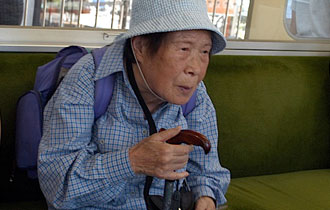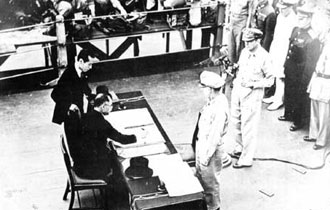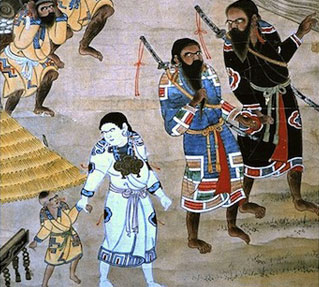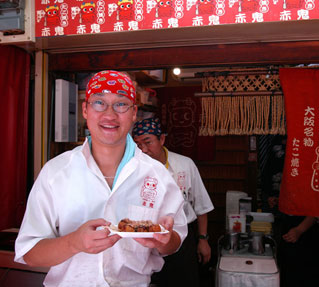Pages |
In-group and Out-group
In the above section involving a visitor to a company, I remarked on how the speaker perceives the ranking of the conversation participants (the speaker, hearer, and a third person referred to in the sentence) determines the choice of predicate. There is, however, a little more to say about group affiliation which prominently affects keigo use.
All Japanese people belong to any number of groups-social, school, familial, corporate, hobby, etc. When speaking, the speaker's identification to a specific group relative to that linguistic situation must be taken into consideration concerning how to describe an action or condition of the participants and other referents. So, depending on who is participating in a particular linguistic situation, the speaker's identification with a specific group and his perspective as to where he or she fits in that group shift dynamically. Thus, a skillful speaker must be able to track these quick shifts and adjust language use appropriately. Also, although the group-affiliation shifts from one conversation to another, one thing that is consistent and needs always to be kept in mind is that the speaker always belongs to the smallest group, that of an in-group.
To illustrate the function of these groups and how they change their memberships fluidly, let us consider three situations, first using the example of Sakuma (a client of Ueno's company), Ueno and Matsuda we used briefly above. In the situation we discussed above, we saw that Sakuma referred to the CEO's action deferentially, using an exalting verb irasshaimasu↑ 'go' (exalting). In response, Ueno used a humbling verb orimasu↓ 'go' (humble) to describe his CEO's action. This is explained by the fact that Ueno and CEO belong to the same company, the same in-group. Sakuma belongs to the out-group, in her and Ueno's perception. These in- and out-group affiliations determine what keigo should be used.
Now to the second situation. Suppose Sakuma leaves, and Ueno and his colleague Yamamoto begin to discuss the CEO. In their conversation about Matsuda's itinerary, both Ueno and Yamamoto will likely refer to their CEO's attending the meeting as irasshaimasu↑ 'go' (exalting). Why? In this situation, the in-group is made of Ueno and Yamamoto, and the CEO now belongs to the out-group, thus the use of exalting language, in their acknowledgment that CEO ranks higher than theirs in this linguistic situation.
The next and third example illustrates more how these dynamic shifts of group affiliation affects language use, see below.
Sakuma (to Ueno): Shachō irasshaimasu ka?↑
"Is the CEO going?"
Ueno: Yamamoto-san, shachō irasshaimasu ka?
"Ms Yamamoto, is our CEO going?"
Yamamoto (to Ueno): Ee, irasshaimasu.↑
"Yes, she is."
Ueno (to Sakuma): Ee, mairimasu.↓
"Yes, she is."
Sakuma: Jitsu wa watashi mo mairimasu.↓
"In fact, I am going too."
Pages |











